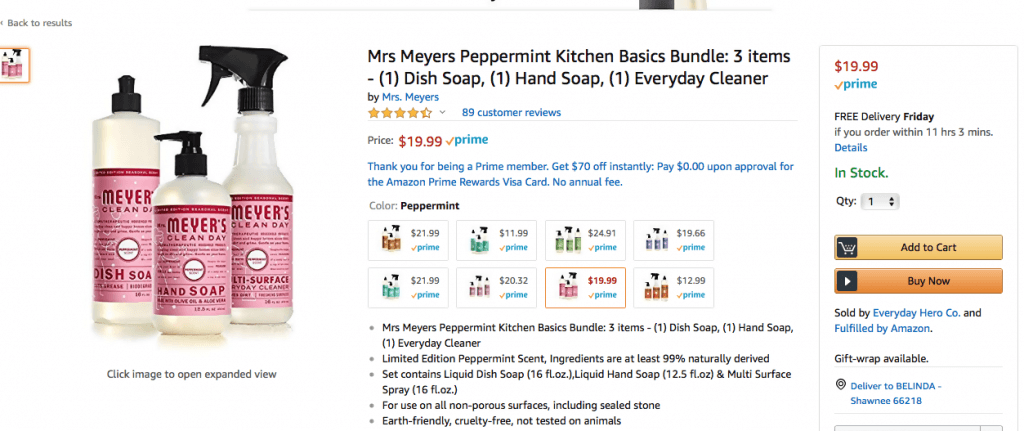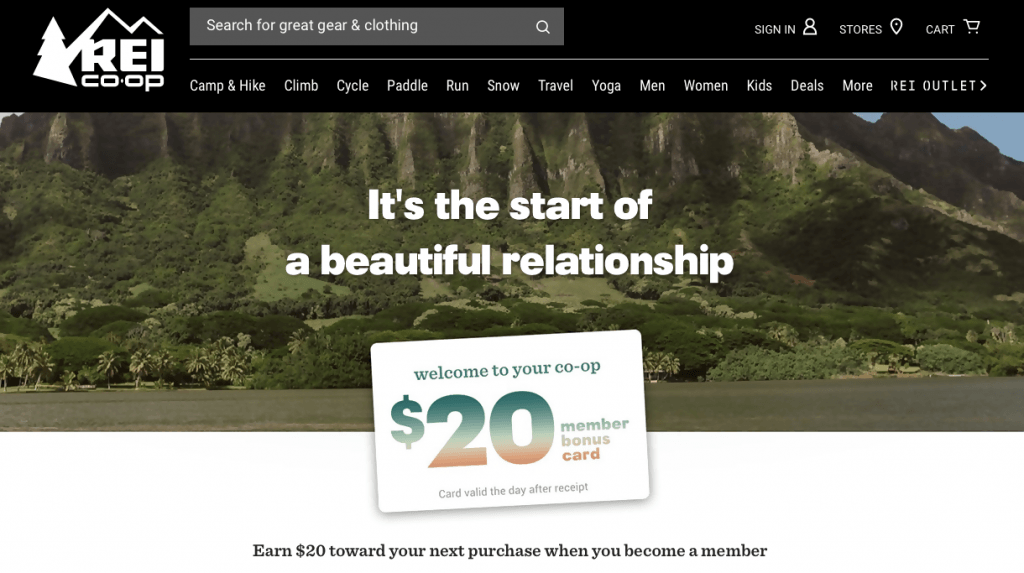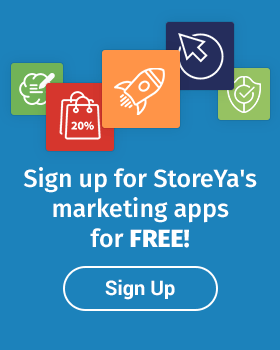One statistic that all business owners should know is that 40% of shoppers admit to spending more than they budgeted. What that means to you as an online retailer is that you need to find a way to make sure you are presenting shoppers with options to buy things in the digital checkout line.
Think about it from a brick and mortar perspective. How many times have you been waiting in line to check out at a clothing/grocery/beauty supply store and picked up a pair of sunglasses/candy bar/lip gloss to throw into your cart at the last minute?
I’m sure it happens all the time. That’s why brick and mortar stores place last-minute, inexpensive items at the register. That’s why McDonald’s displays its amazing apple pies within sight of the customer.
But your eCommerce customers don’t wait in line at a real-life register. They don’t stand impatiently with a real-life shopping cart as the preschool monster behind them rams the cart into their heels over and over again.
How can you encourage the same kind of add-on sale through your eCommerce website? Since you can’t arrive at your customers’ front doors with an array of products for them to choose from, you have to get a little creative.
Here are ways to increase the average order value of your customers’ carts.
1. Offer a Bundle Deal
Encourage the sale of multiple items on your website by using a bundle deal.
Amazon is the master of bundles. The online retail giant always shows “Customers often bought these items together” along the bottom of the screen to entice shoppers to add items to their purchase. One study showed that suggestions from the website made up to 35% of Amazon’s sales. Some of those suggestions are bundled products.
Bundling is beneficial to customers for several reasons. It simplifies the sale of the product by lumping all needed items into one purchase. Customers feel as if they are receiving a discount because the price of the multiple items added together would be more than purchasing the same products in a bundle.
2. Offer Discounts with a Minimum Sale
Almost every large eCommerce site offers a discount or free shipping with a minimum sale. Marketing professionals hope that customers will add to their shopping carts to get to that specific amount.
These marketers also hope that their customers aren’t particularly good with math, or else the customers would see that adding on an unneeded item to receive a discount isn’t always advantageous.
This strategy works. According to HubSpot, 24% of online shoppers are willing to spend more to qualify for free shipping. Reminding customers of this promotion when they add an item to their carts is especially helpful.
How do you set the minimum order? One strategy is to calculate the average order value over the last few months and then offer a discount or free shipping on all orders 10-20% over your average order.
The strategy works for outdoor hiking company REI. They offer free shipping when you spend $50 or more. And, a survey of digital shoppers proves the strategy causes them to fill up their cart. The numbers say that 48% of online shoppers have added items to a cart to qualify for free shipping.
3. Offer Gift Cards for Specific Purchases
Another strategy that you may want to try is to offer your customers gift cards to be used on their next purchase.
This strategy should be carefully considered before trying it out in your industry. For example, if your eCommerce website offers items that cost $25 or more, you may consider offering a $5 gift card with the purchase. Of course, make sure the customer is not able to use the gift card on their current purchase; instead, they need to revisit your store to utilize their discount.
This strategy only works if you do not have items that cost $5 or less on your website, so shoppers have to use the gift card to buy something larger or pair it with something else.
If the customer uses the $5 discount for a future purchase, you win because you have received two orders from one customer and it only cost you $5. With two sales, you may have also earned a customer for life.
If the customer doesn’t use the $5 discount, you still win because he or she purchased at least one item at full price.
Offering gift cards with purchase works for gaining return customers. Target has been using this strategy for years in their weekly ads. Customers can purchase four containers of shampoo or conditioner, and they will receive a $5 gift card to be used on their next purchase. Target knows that 65% of gift card holders spend an extra 38% beyond the value of the card.
This post-sale strategy can be incorporated with several other techniques, such as asking for a customer review and thanking the customer for his or her order.
4. Encourage Customers to Purchase More Expensive Products
The ‘Good, Better, Best’ pricing strategy has been used for years in some industries. Cars are sold at varying levels. Cable TV providers have basic packages and premium packages. Even the top level at a car wash promises to clean your car’s dirty undercarriage.
As this sales strategy has spread to other industries, company leaders have been amazed to see up to 40% of customers deciding on the top-tier option.
According to the Harvard Business Review, Six Flags began offering different tiers of day passes to their amusement parks. For years, the ticket price was the same for every customer. They decided to provide a more expensive pass that allows customers to spend more money to reduce their wait time on favorite rides by up to 50%. Another tier was then added to reduce the wait time by up to 90%. The CFO said he was amazed that people would pay for the platinum ticket option.
5. Text Customers to Remind them to Return to Their Carts
How do you encourage your customer to click that final “buy now” button on your website? You can send an email, but emails may go into spam folders or get immediately deleted. You could try calling customers, but who answers their phones anymore?
Try sending your customers a text message that it is time to check out from your website. Considering that 95% of people check their text messages within 3 minutes, this is a good indicator that your customer received the reminder about their cart.
HMS Commerce, a company that helps online retailers set up and manage their stores, reported that some of their clients have actually seen cart recovery rates hit 55% and clients earn up to $20,000 in additional sales per month as a result of text message reminders.
People still look at their texts. And, sending reminders to customers to return to their carts will increase your average order value. Implementing these reminders is very simple, too. Platforms like TextMagic, an all-in-one mass text messaging service, can provide you with the tools you need to streamline the process of sending cart alerts to customers.
Additional Strategies:
6. Implement a Loyalty Program: Reward repeat customers with points or discounts for every purchase. A loyalty program incentivizes customers to buy more to earn rewards.
7. Use Exit-Intent Popups: Deploy popups offering discounts or special offers when customers attempt to leave the site. This can convert hesitant shoppers into buyers.
8. Personalize Product Recommendations: Utilize customer data to recommend relevant products. Personalized suggestions can increase the likelihood of additional purchases.
9. Create Limited-Time Offers: Introduce time-sensitive deals to create urgency. Flash sales or limited-time bundles can drive quick purchases.
10. Enhance Product Descriptions and Images: Provide detailed descriptions and high-quality images to give customers confidence in their purchases. Clear information reduces hesitation and increases order size. We invite you to use our Product Description Wizard powered by AI to generate product descriptions at the click of a button.
Conclusion:
Increasing average order value involves strategic tactics such as bundling, minimum order discounts, gift cards, and personalized recommendations. By implementing these methods, online retailers can effectively encourage customers to spend more.

Anastasia Sviridenko is a content marketing manager at TextMagic. She’s always in pursuit of new content ideas, and whenever she’s not writing, you can find her wandering about the nearest bookstore.
Recommended articles
 Facebook Ads for eCommerce: 16 Strategies, Examples & Tips
Facebook Ads for eCommerce: 16 Strategies, Examples & Tips
 How to Build a Winning eCommerce Ads Strategy
How to Build a Winning eCommerce Ads Strategy
 Google Ads for eCommerce: Everything You Need to Know
Google Ads for eCommerce: Everything You Need to Know
 10X Your Traffic with PPC Management Software
10X Your Traffic with PPC Management Software
Comments
Powered by Facebook Comments





